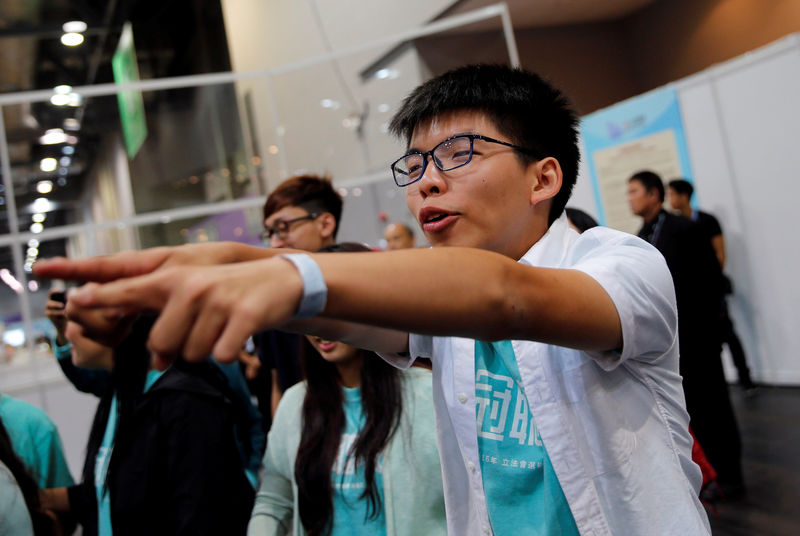By Venus Wu and James Pomfret
HONG KONG (Reuters) - Several pro-independence candidates won seats in Hong Kong's legislative election which saw a record turnout in the Chinese-controlled city on Sunday, results likely to further strain ties with Communist Party rulers in Beijing.
An initial count on Monday also suggested Hong Kong's pro-democracy opposition might retain its crucial one-third veto bloc in the 70-seat Legislative Council over major legislation and public funding that has helped check China's influence.
Full results weren't due till later in the day.
This was the first major election since the student-led, pro-democracy "Umbrella Revolution" protests in 2014 that blocked roads for 79 days in a turning point in the city's politics, even though Beijing gave no ground.
Since then, many disaffected youngsters have decried what they see as increasing Beijing interference stifling dissent and civil liberties, leading to a radicalisation of the political scene and occasional violent protests.
The former British colony was handed back to China in 1997 under a "one country, two systems" agreement that promised to maintain the global financial hub's freedoms and separate laws for at least 50 years, but gave ultimate control to Beijing.
Several veteran democrats failed to retain their seats, as voters backed a new batch of younger democrats espousing self-determination and a more confrontational stance with China.
"It's a new era," said Lee Cheuk-yan, a democratic lawmaker who lost his seat after more than two decades in public office.
"People want change, change meaning that they want new faces ... but the price is a further fragmentation (of the democracy camp). Ideologically they're talking about independence and they want to assert themselves."
Hong Kong Secretary for Constitutional Affairs Raymond Tam said the government would do its best to "bring them around to a more centrist position".
"But it's too early to say if this will be an issue," he said.
Pro-establishment lawmakers like Elizabeth Quat said she hoped the issue of splitting from China wouldn't enter the legislature or it could damage Hong Kong's longer-term economic interests.
"Independence is not realistic at all," she said. "Hopefully this will not be their main objective."
Voters flocked to cast ballots in record numbers with some having to wait several hours after the close of polling past midnight at congested voting booths, leading to some delays in vote counting on Monday.
"Hong Kong is really chaotic now. I want to do something to help," said 28-year-old Maicy Leung, who was in a snaking queue of several hundred. "It's to help the next generation and to help myself."
The Electoral Affairs Commission said 58 percent of the city's 3.8 million eligible voters had cast their ballot, up from 53 percent in 2012 and the highest turnout for any legislative election since 1997.
Despite the disqualification of six pro-democracy election candidates from the election in July on the grounds that they backed independence, at least five "localists" and younger democratic newcomers won seats, including one of the leaders from the mass democracy protests of 2014, Nathan Law.
Localists put the interests of Hong Kong before those of Beijing.

"I'm quite shocked," said Law, 23. "We inherit some spirit from the movement and I hope that can continue in the future ... We still have to unite in order to have stronger power to fight the Chinese Communist Party."